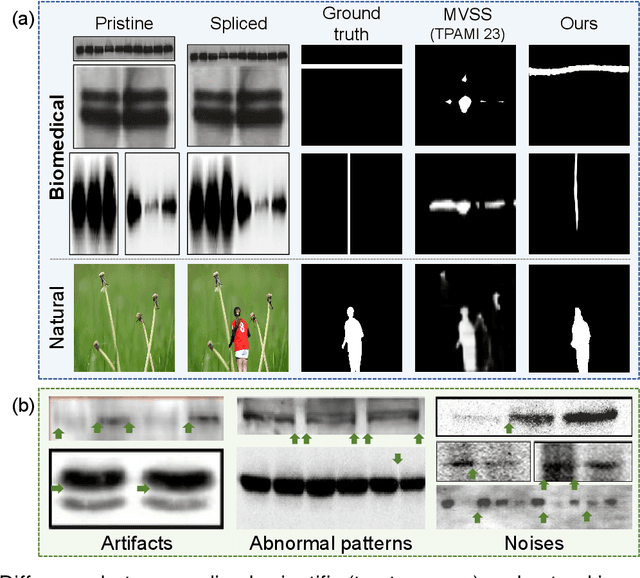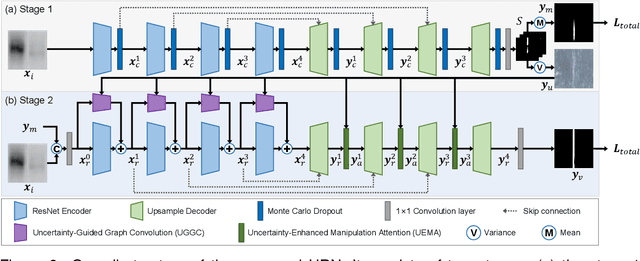Biomedical Image Splicing Detection using Uncertainty-Guided Refinement
Paper and Code
Sep 28, 2023



Recently, a surge in biomedical academic publications suspected of image manipulation has led to numerous retractions, turning biomedical image forensics into a research hotspot. While manipulation detectors are concerning, the specific detection of splicing traces in biomedical images remains underexplored. The disruptive factors within biomedical images, such as artifacts, abnormal patterns, and noises, show misleading features like the splicing traces, greatly increasing the challenge for this task. Moreover, the scarcity of high-quality spliced biomedical images also limits potential advancements in this field. In this work, we propose an Uncertainty-guided Refinement Network (URN) to mitigate the effects of these disruptive factors. Our URN can explicitly suppress the propagation of unreliable information flow caused by disruptive factors among regions, thereby obtaining robust features. Moreover, URN enables a concentration on the refinement of uncertainly predicted regions during the decoding phase. Besides, we construct a dataset for Biomedical image Splicing (BioSp) detection, which consists of 1,290 spliced images. Compared with existing datasets, BioSp comprises the largest number of spliced images and the most diverse sources. Comprehensive experiments on three benchmark datasets demonstrate the superiority of the proposed method. Meanwhile, we verify the generalizability of URN when against cross-dataset domain shifts and its robustness to resist post-processing approaches. Our BioSp dataset will be released upon acceptance.
 Add to Chrome
Add to Chrome Add to Firefox
Add to Firefox Add to Edge
Add to Edge